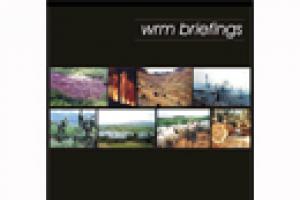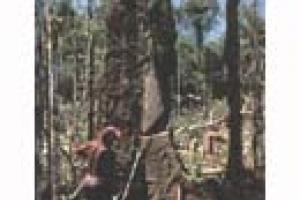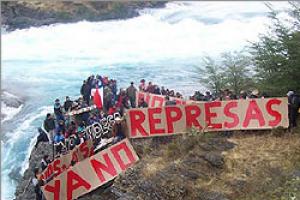In the framework of the World Social Forum, representatives of Latin American NGOs got together to discuss the possibility of coordinating efforts with respect to the growing problem of tree monocultures.
During this meeting, the factors promoting territorial occupation by monocultures aimed at timber, cellulose fibre and palm oil production were analysed, together with factors limiting this occupation.
America (general)
Publications
17 December 2002
Forests are one of the most valuable eco-systems in the world, containing over 60 per cent of the world's biodiversity. This biodiversity has multiple social and economic values, apart from its intrinsic value, varying from the important ecological functions of forests in terms of soil and watershed protection to the economic value of the numerous products which can be extracted from the forest. For many indigenous and other forest-dependent peoples, forests are their livelihood.
Other information
18 July 2002
Only available in Spanish
Publicación de Censat-Agua Viva en ocasión de la Cumbre Mundial de Johannesburgo.
Amazonía: Selva y Bosques diez años después de Río
Other information
14 May 2002
Eduardo Galeano, one of the most profound and committed writers on the situation of Latin America and its peoples, is widely known within and outside the continent for his classic work “The Open Veins of Latin America”, published over 25 years ago. However this was not the culmination but rather the starting point of an untiring and relentless activity towards a freer and more equitable Latin America, reflected in many of his works published since then. Among them is the book “Úselo y tírelo,” (Use it and throw it out).
Bulletin articles
15 April 2002
From March 21 to 23, men and women from 98 organizations and communities in 21 countries of the world gathered in Guatemala to express the general concern caused by the plans of construction of dams for various purposes in different regions.
During the meeting, called “Foro Mesoamericano Por la Vida” (Meso-American Forum For Life) the participants shared information and experiences, and analized the negative environmental, cultural and socio-economic impacts already caused by these projects and the potential damages they entail.
Declarations
24 March 2002
Only available in Spanish -
Cooperativa Unión Maya Itzá, Petén - Guatemala
21 al 23 de marzo de 2002
Durante los días 21 al 23 de marzo nos hemos reunido hombres y mujeres de 98 organizaciones y comunidades de 21 países del mundo ante la preocupación general causada por los planes de construcción de represas con diferentes fines en diferentes regiones.
Bulletin articles
12 March 2001
Biological corridors are linear strips of vegetation that provide a continuous or near continuous pathway between habitats. They constitute a strategy used in nature conservation to cope with the problem of habitat fragmentation provoked by economic activities such as industrial agriculture and tree plantations, urbanizations and infrastructure works like highways and dams. Based upon modern theories of Ecology applied to conservation --e.g.
Other information
17 August 2000
Responding to a request of the U.S.-based independent electrical power producer Applied Energy Services Inc. (AES), in 1988 the World Resources Institute identified and evaluated forestry projects to compensate the carbon dioxide emissions of the company's new coal-fired powerplant in Connecticut, expected to emit about 14.1 million tonnes of carbon over its 40-year lifespan.
Other information
17 August 2000
In the last decades several South American countries have been the scenario of the expansion of tree monocultures --basically eucalyptus and pines-- mostly devoted to pulp production. The newly created carbon market can mean a renewed push to further expand this activity, this time with a new or additional purpose. In fact, forestry companies and some governments are very enthusiastic about the idea of using part of the already existing plantations and installing new ones to serve as carbon sinks.
Bulletin articles
26 December 1998
"Forest-Americas" is a list for forest activists in North, Central and South America who want to work together to protect forests and counter the growing threats posed by trade liberalization and globalization of the timber trade. The purpose of the list is to help activists build wider networks to share information and develop joint strategies.
Articles
2 January 1998
At the Nawash website
you can find information about the struggle of this indigenous nation of North America.
The website of the First Nations Information Project
offers quick access to native organizations, government departments, federal press releases, and the Supreme Court of Canada.
Source: David McLaren, January 1998.
Pagination
- First page
- Previous page
- …
- 3
- 4
- 5
- 6
- 7
- 8
- 9
- 10
- 11



